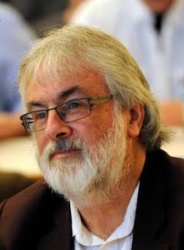Australia Scores Victories At The United Nations
Australia Scores Victories At The United Nations
By Andreas von Warburg
Australia’s foreign policy has been scoring several victories at the United Nations lately. Since the beginning of August, Canberra was able to secure two high level positions within the world body, increasing the number of Australians within the UN leadership to five.
Secretary-General Ban Ki-moon has recently informed the Security Council that he intends to appoint Australian Mike Smith as the new Executive Director of the United Nations Counter-Terrorism Committee.
The position, which is at the Assistant Secretary-General level, was created by the Security Council in 2004 “to bolster the 15-member body’s ability to monitor the implementation of landmark resolution 1373 adopted in the wake of the September 2001 attacks on the United States. The resolution calls on countries to adopt a number of measures to enhance their ability to counter terrorist activities nationally, regionally and globally.
Smith, currently Australia’s Ambassador for Counter-Terrorism and formerly his country’s Permanent Representative to the UN in Geneva, joins other fellow Australians appointed in the last few years at the Assistant Secretary-General level: Erika Feller, Assistant High Commissioner for Refugees; Major General Ian Campbell Gordon, Chief of Staff of the United Nations Truce Supervision Organization in Palestine; and John Powell, Deputy Executive Director of theWorld Food Programme.
Smith’s appointment follows that of another Australian, Commissioner Andrew Hughes, as Police Adviser in the Department of Peacekeeping Operations. Hughes replaced Mark Kroeker of the United States, who left the post in April 2007.
Hughes, who has served in the Australian Federal Police for over 30 years, has been at the forefront of Australia’s contribution to recent United Nations peacekeeping operations, overseeing all international operations and was involved in the Australian Police contribution to the United Nations Mission in East Timor, as well as Australia’s ongoing contribution to the United Nations Peacekeeping Force in Cyprus.
According to statistics published on the website of the Permanent Mission of Australia to the United Nations in New York, Canberra “is the thirteenth-largest contributor to the United Nations budget,” with a total of 1.787 per cent of the budget. The two largest contributors – namely the United States and Japan – pay together over the 38 per cent of the budget (22 percent the US and 16.6 percent Japan).


 Gordon Campbell: On The Americanising Of NZ’s Public Health System
Gordon Campbell: On The Americanising Of NZ’s Public Health System Ian Powell: Trumpian Health Leadership
Ian Powell: Trumpian Health Leadership Eugene Doyle: Disruption - Historians Challenge Russophobic Propaganda
Eugene Doyle: Disruption - Historians Challenge Russophobic Propaganda Ramzy Baroud: War, Doublethink, And The Struggle For Survival - Geopolitics Of The Gaza Genocide
Ramzy Baroud: War, Doublethink, And The Struggle For Survival - Geopolitics Of The Gaza Genocide Binoy Kampmark: Authoritarian Politics - Netanyahu’s War On Israeli Institutions
Binoy Kampmark: Authoritarian Politics - Netanyahu’s War On Israeli Institutions Keith Rankin: Learning The Correct Lessons From World War Two In Europe
Keith Rankin: Learning The Correct Lessons From World War Two In Europe